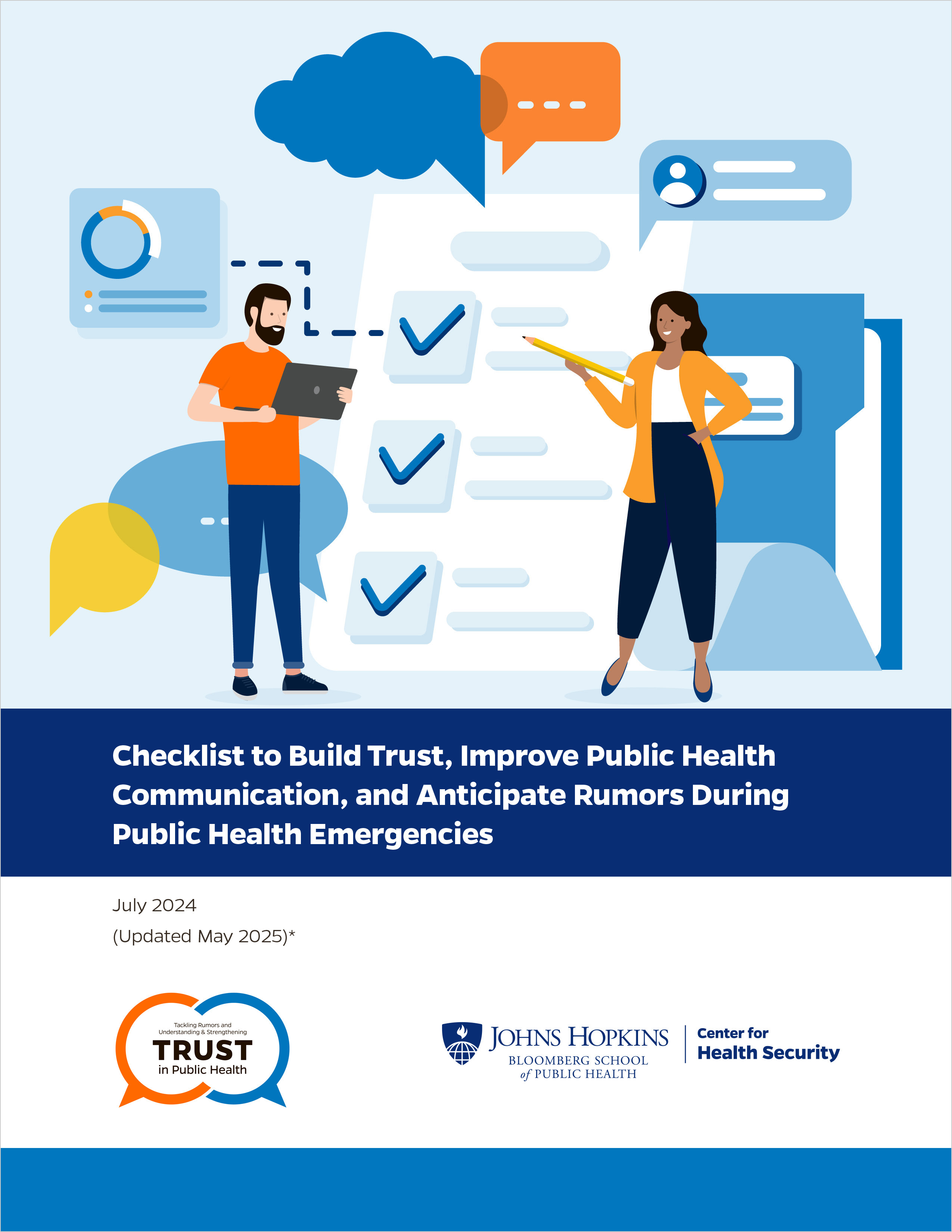
Tackling Rumors and Understanding & Strengthening Trust (TRUST) in Public Health


Building trust in public health is important because it affects how well communities fare during public health emergencies. When people trust health experts, they are more likely to follow recommendations and engage in healthy behavior during health crises. However, trust in public health has been declining, partly due to the spread of misleading rumors and false narratives. This decline in trust makes it harder to respond effectively to emergencies.
In order to rebuild trust and improve the public’s resilience to inaccurate and incorrect claims, health departments need to focus on strengthening a range of activities, including community engagement and public communication.
The Johns Hopkins Center for Health Security has developed a checklist to help public health departments and communicators build trust, improve public health communication, and anticipate misleading rumors during public health emergencies.
Learn more about the checklist
The Checklist contains recommendations backed by current communication science as well as the voices and lived experiences of experts and practitioners, but we also wanted to provide public health communicators the opportunity to learn more directly from their peers’ experiences. Watch below to hear the stories of public health communicators at three local health departments.
Baltimore City, Maryland
Adam Abadir and Benjamin Jancewicz discuss their unique, viral approach to Baltimore City Health Department communications during the COVID-19 pandemic.
Cameron County, Texas
Esmeralda Guajardo and Javier Chavarria describe how robust trust-building strategies and creative innovation improve public health communication near the U.S.-Mexico border in Cameron County, Texas.
Seattle & King County, Washington
Annie Kirk, Justin Jeffrey, and Tausili Kalepo describe successes and lessons learned regarding community engagement and partnerships in Seattle & King County, Washington.
